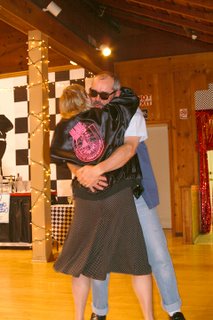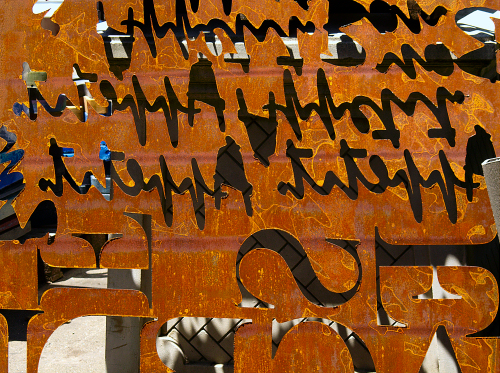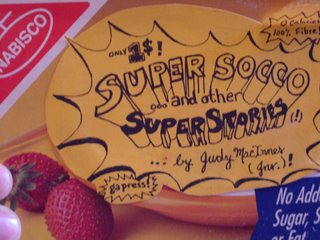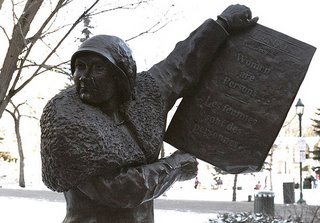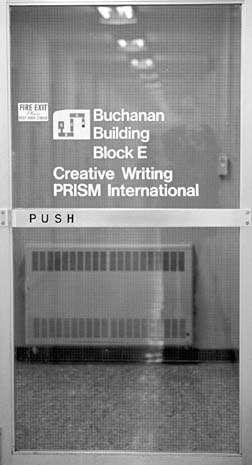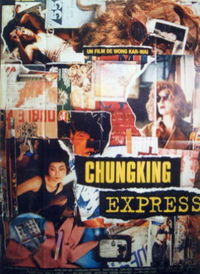
by
Patricia Parkinson
I went to University - I love that word - University, as a mature student ten years ago. At thirty-five, seven months after the birth of my daughter, my first child, I was going back to school to get my teaching degree. That was my plan. I got up at six in the morning, hauled my elfin child to day care and took English 101 with Professor Anonby at Trinity Western University, a mere five minute drive from my suburban home.
I loved it. I was never late, a huge accomplishment believe me. Punctual isn’t in my vocabulary, but I couldn’t wait to arrive at school, to park my mini van and make the mad dash to building three. I reveled in the atmosphere of the campus, the young, nubile students running from class to class, books and backpacks in their arms, and I followed along and tried to blend.
My professor didn’t know what to make of me. The perky woman in the front row, paying rapt attention to every word he spoke, writing notes like a manic. I seldom spoke - I am quite shy after all, never asked questions, fear of revealing my lack of intellect, leftover baggage from grade school. I enjoyed eavesdropping on the conversations of the just turned men and women who sat around me. Complaints about cramming for exams and pulling all-nighters and their yucca flux intake of the weekend. I did all my reading, ahead of time. Overall, I figured I had it covered. Then came our first assignment.
Professor Anonby stood at the front of the class, extended a stubby tweed- covered arm above his head and began to write on the pristine, green blackboard, the fresh, white cylinder of chalk - music to my ears.
Describe the theme of “The Cask of Amontillado”, he wrote, and turned to face the class.
“You’ve all read it, or should have by now, at least once, preferably twice. If not you shouldn’t be here.”
I had read Edgar Allan Poe’s, “The Cask of Amontillado,” three times. I knew the story well. I loved it in fact, the intensity- the suspense, all of it. I even understood the guilt. But theme, what is theme? I asked myself, looking around while my fellow classmates didn’t bat one bloodshot eye.
How could I write an essay if I didn’t even understand the freaking question?
Theme? I was in over my head. Discuss the theme of “The Cask of Amontillado.” What did that even mean? I didn’t analyze fiction. I read it.
The possibility of failure loomed. Failing! Me! A Graduating Class of 1979-honor roll student, okay, not quite honor roll in grade twelve, but well…grade twelve was a transitional year in my education process.
My hand shot up to ask my first question of the semester.
“Mrs. Parkinson,” Professor Anonby said, shocked I’m sure, wondering what this mature woman would say. I myself had no idea. It just seemed like the thing to do.
“Oh, me. Yes, well, theme. I love theme. Theme is great!” I said.
What the fuck are you saying! My brain seized
The only thing I knew about themes were parties. I was on the Student’s Council after all, Social Director. My platform was “Vote for me and I’ll show you a good time this year!” Really! It’s true. You can laugh now. Okay. Stop laughing.
I held theme days, color days, dress as a movie star days, theme dances, and toga parties and booked bands -got Loverboy for a Halloween party, that was cool, and lived up to my campaign promises, and now, I had to write a fifteen hundred word essay on the theme of The Cask of Amontillado?
What did theme have to do with reading? Or writing for that matter?
The student union offered peer tutoring for ten dollars an hour. I booked the first available appointment with a senior student from Iowa, the daughter of a missionary family.
“My father is a pastor,” she told me.
Oh, I failed to mention that TWU is a Christian University.
Patricia Parkinson? Christian University?
Laugh as much as you like.
They accepted my application - some quota they had to fill with minority students, and me being soooo mature, fit one of the requirements. I spent a lot of my time in fear of being expelled for non- Christian practices. Smoking in my van before class, I’m sure parking lot security saw me flick a butt from my window, not to mention my swearing, using the lord’s name in vain and well, other opinions I hold that are not generally deemed Christian, which is not a topic I wish to discuss here, or most places for that matter.
So there I was with Miss Iowa, my shirt draped over my daughters head while she nursed, my daughter who knew by then how to lift my top to check out her ever-expanding world while exposing my ever-expanding nipple. She took a break from feeding, turned and looked at my tutor. Miss Iowa stared lovingly at the Madonna sight.
“I like your hair,” she said to me. “It’s so in style. Do you watch Friends?”
“Pardon me?”
“You know, the show, your hair,” she replied, touching her own hair.
“Oh yeah, right, Friends. Thanks,” I said, and pointed at my own hair like a duffus.
She smiled and just as I thought she was about to touch me, I grabbed the book and held it up between us.
“I have a deadline,” I said.
“What’s the story about?” she asked.
I sat there thinking, I’m paying this girl and she doesn’t even know what it’s about? She hasn’t even read the thing?
“It’s about this guy. He’s dying. It’s his last confession.”
“What does he confess?”
“To the murder of his rival.”
“Did you like the story?”
“It was incredible. The suspense. It scared me, a lot in fact. The realness of it, how I could imagine it happening, see it and feel it the hatred. The way Poe describes how Montresor kills Fourtunato, the masonry, the catacombs. Such a horrible way to die, and all for one thing.”
“What was that?” the girl asked. Again with the questions, this chick, I thought, has no clue.
“Revenge,”” I answered.
Miss Iowa clapped her hands and looked at her watch. “It seems my work here is done,” she said.
“Done?”
“Why yes,” she said. “You know the answer to the question. You just have to figure out how to put it in your own words. Look for passages in the book that support your theory.”
“My theory?” I was still saying while she pocketed the cash I’d paid in advance.
I read the story again, and again…and again! And gathered nothing new. What is the story about? I kept asking myself. It's about a guy who's jealous and diabolical. Unfulfilled revenge.
And then a thought occurred to me. I had a wave of the right idea, an epiphany, and a plan formulated in my mind. I pulled my own all nighter, wrote like a woman who knew what she was talking about and ended up with a B+.
There are many themes running through my life. There are themes involving my children that move me to pure love and there are desperate themes when I wish the only thing I had to worry about was how to explain theme. There are themes that started in my childhood and ended in divorce. Some are filled with loss, while others are a moment; a feeling, an epiphany. My current theme is confusion, chaos, and general pandemonium. I try not to think about it. I'm trying to take things as they come, trying to find clarity and not let moments that I should embrace pass me by out of fear or pride. I need to create a new theme.
I'll figure it out.
 By Anne Chudobiak
By Anne Chudobiak

